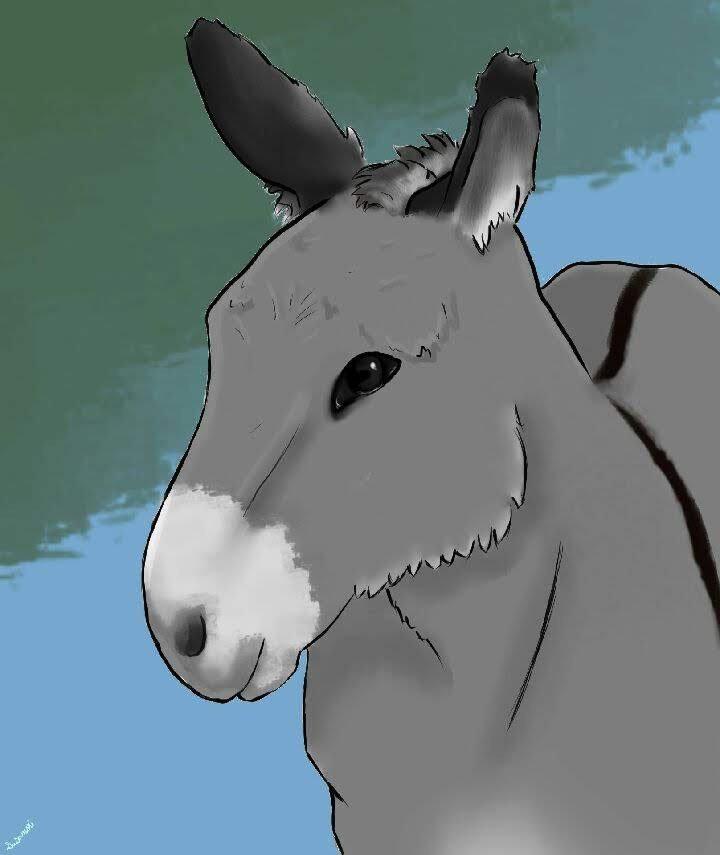Halfway through The Last Battle, a small band of faithful Narnians rescues Puzzle the Donkey, whom the Ape had used to spread his lies about Aslan. The newly redeemed donkey shyly eats grass near Jewel the Unicorn. In Narnia, unicorns are strong, wise warriors, not sparkly horseys.
Puzzle looked and felt a good deal better this morning. Jewel, being a Unicorn and therefore one of the noblest and delicatest of beasts, had been very kind to him, talking to him about things of the sort they could both understand like grass and sugar and the care of one’s hoofs.
Jewel can lead a charge and recite Narnian history by heart, but he talks of humble things with the humble Puzzle.
This changed the way I view conversations. There are many conversations I wouldn’t have had were it not for my desire to show a unicorn’s kindness, nobility, and delicacy. I have stopped despising small talk and “trivial” subjects that don’t excite me because I value the person more than my entertainment. Often, the conversation is no less enjoyable for it. Whenever I’m tempted to priggery and snobbishness, I think of Jewel and Puzzle.
Of course, I assumed I was the unicorn, not the donkey. I’m smart. I love to talk about big ideas. I write and talk about literature and virtue and a life well-lived, so naturally I’m the unicorn.
Aren’t I?
For every conversation in which I am the gracious unicorn, there are two in which I am confused by the conversation topic, struggling to follow an intricate discussion about philosophy or politics. I try to understand, even if I can’t participate actively. Sometimes asking clarifying questions spurs the conversation on, but taking things back to the basics can also kill the conversation. If my struggle is too obvious, I might find myself left out of the discussion entirely. This was especially true when my husband was still in grad school, and at social events I felt like I was playing the role of “Grad Student Wife Number 4.”
Other times, a kind soul might change the subject and ask about a recent movie or my job or what I was reading. I appreciated such friendly gestures from people who actually saw me as a person worthy to be talked to and not at. They were unicorns.
I confess that I sometimes resented these moments. Did I really look that dumb? Did they think I was too shallow to care about the Straussian interpretation of philosophers or too disconnected to brilliantly analyze the presidential election? I wanted to be able to dazzle in my conversation, not fumble along until an “easy” topic came up. I wanted to be the unicorn, and I hated myself for being the donkey.
It was much easier to learn from the noble, gracious unicorn than the humble, stupid donkey, but I need the donkey lessons much more.
Granted, there are many reasons no one should be like Puzzle. His stupidity, low self-esteem, and timidity make him complicit in an antichrist charade that literally destroys Narnia. Even after his redemption, he contributes very little to the party, being neither brave nor clever. He is very ashamed of himself and only lives because Jill cries for mercy for him. It is this last part that we should emulate: he accepts that mercy completely.
Many cleverer people might have let their personal shame separate them from the group. It is painful to be with people who know your sin and stupidity. Puzzle’s complete surrender to them endears him to them, so that Tyrian goes from wanting to kill him to swearing to protect him in a single night. I, who struggle to accept kind conversationalists’ gestures, falter when I consider how I would act if I were guilty like Puzzle. Would I accept mercy?
I must, for I am guilty.
These daily humiliations are killing the thing that would drive me from the mercy seat. The pride that stands so tall when I think well of myself cowers behind me at the first blow to my confidence, sniveling, “Save me! Get angry! Sulk! Distract yourself until the bad feelings go away! Don’t let me die!”
Stop shielding the foe with your own heart. Let it die.
When Puzzle arrives in Aslan’s Country, he at first feels too ashamed to face anyone. But after eating some grass, he plucks up his courage to journey on with the others. At last, Aslan comes leaping to meet them,
“And the first person whom Aslan called to him was Puzzle the Donkey. You never saw a donkey look feebler and sillier than Puzzle did as he walked up to Aslan, and he looked, beside Aslan, as small as a kitten looks beside a St. Bernard. The Lion bowed down his head and whispered something to Puzzle at which his long ears went down, but then he said something else at which the ears perked up again. The humans couldn’t hear what he had said either time.”
The answer is not to give up good, unicornly pursuits because they might puff me up. I must give each piece of fruit to God; I can’t let my pride glut itself on my cleverness or even my kindness.
I should strive to be a unicorn while remembering that in the end, I’m not the unicorn.
I’m the donkey.
You can follow the artist from today’s post on Instagram @susanskiarts.





